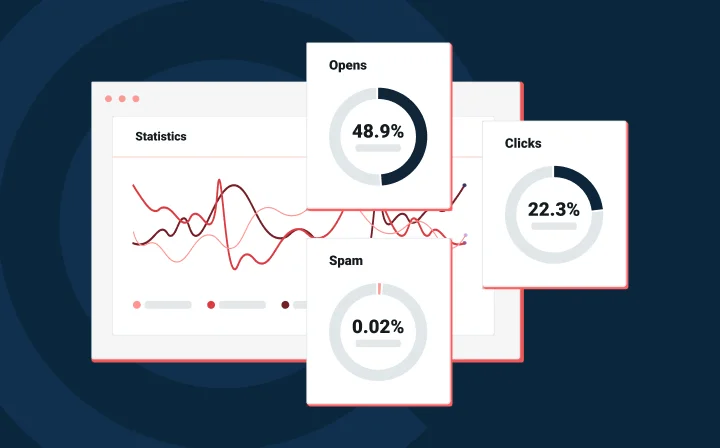Deliverability
What is a dedicated IP: Everything you need to know

Deliverability

You’re setting up your Email Program and you’ve hit a snag: dedicated IP vs. shared IP? While both have their advantages, there are some key things that you should know before you get started, starting with the basics. What’s an IP address, anyway?
Before we dive into what dedicated or shared IP are, let’s talk about IP addresses.
An Internet Protocol (IP) is an address assigned by your Internet Service Provider (ISP) that uniquely identifies your internet connection or a domain on the web. A unique IP address is a unique string of characters that identifies an individual computer using the Internet Protocol to communicate over a network.
But memorizing a bunch of numbers just to access a website is pretty hard, right? That’s where the Domain Name System (DNS) steps in. DNS maps IP addresses onto alphanumeric domain names, like www.mailgun.com. Instead of typing in the IP address to navigate to a domain, we can just use the domain name.
There are two types of IP addresses: dedicated and shared.
Dedicated IP addresses are precisely that: IP addresses only you use through a virtual private network (VPN). Dedicated IPs send your email messages from a unique and exclusive IP. Email service providers (ESPs) examine the reputation and activity of an IP address to determine whether or not to deliver emails from domains associated with a particular IP.
With dedicated IP addresses, you’re organization is the only user, and you have complete control over how the email sender reputation and email deliverability are managed for that IP, vs a shared IP that considers the reputations of all its users. On the other hand, shared IP addresses are cheaper and usually more cost-effective.
“Wait,” you’re probably thinking, “You just said shared IPs are more cost-effective. Isn’t this better for my business?”
For the most part, you can benefit from using shared IPs. They’re great when you’re just starting to send emails and don’t have any street cred with ESPs. Shared IPs are a combined effort and the fact that they are established means that the reputation is already established as well. And because they have an effect on all involved, those using shared IPs have likely worked hard to make the shared IP address trustworthy to ESPs.
The flip side is that you also have to deal with other people’s sending habits. Just as other users can boost your shared IP’s reputation, they can ruin it.
If you’re sending millions of emails, or even hundreds of thousands of emails a month (200k+), it’ll start to make sense to build your own IP reputation with a dedicated IP. You might have to invest in a dedicated IP separately, or it might be available as an add-on to your existing hosting plans. Not to mention, when you’re trying to configure your email authentication protocols like SPF, DMARC, DKIM, and SSL certificates to prevent email spoofing, you won’t be protected from other senders on the same IP. Plus, having your own IP prevents sending domain hijacking.
Using a dedicated IP might be more expensive than a shared IP, but it also comes with great benefits. For instance, with a dedicated IP, you’ll have better:
Street cred is everything with ESPs. So with a dedicated IP, it’s all about sending the right volume of emails at the right time to keep them from flagging you as a spammer. You want to time it perfectly to give yourself the room to increase the volume every 24 hours.
Dedicated IPs are good when you are consistently sending high volumes of email. If you only do this occasionally, you could be sending the wrong message. You’ll look like a spammer to spam filters, and you may even end up on a blocklist. If there’s one thing ESPs hate, it’s sudden bursts in sending.
If you intend to have high traffic sporadically, you might consider going the shared IP option. Think of it this way: your sending peaks wouldn’t be so unexpected when ESPs have consistent traffic from other senders.
Through a lot of trial and error, we’ve worked out the kinks and automated the process of warming up your dedicated IP and building your sender reputation. Check out our solution if you don’t want to manually warm up your dedicated IP.
Dedicated IPs are a great way to protect your sender reputation and guarantee your email lands in your subscriber’s inbox. There are other ways too. If all this is new to you, check out our guide on getting started, and be sure to subscribe to our newsletter for helpful articles and tips along your email journey.
Send me the Mailjet Newsletter. I expressly agree to receive the newsletter and know that I can easily unsubscribe at any time.